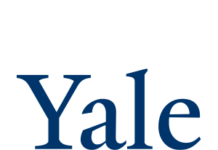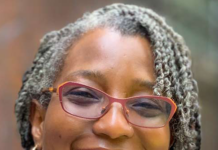 Yale University has issued a formal apology due to findings uncovered in Yale and Slavery: A History, authored by David Blight, professor of history and director of the Gilder Lehrman Center for the Study of Slavery, Resistance, and Abolition at Yale University. The book contains the full findings of the Yale and Slavery Research Project, a long-term initiative launched by Yale in 2020 to better understand the school’s historical connections to slavery and the slave trade.
Yale University has issued a formal apology due to findings uncovered in Yale and Slavery: A History, authored by David Blight, professor of history and director of the Gilder Lehrman Center for the Study of Slavery, Resistance, and Abolition at Yale University. The book contains the full findings of the Yale and Slavery Research Project, a long-term initiative launched by Yale in 2020 to better understand the school’s historical connections to slavery and the slave trade.
“Confronting this history helps us to build a stronger community and realize our aspirations to create a better future,” writes Yale University president Peter Salovey, and Josh Bekenstein, senior trustee of the Yale Corporation. “Today, on behalf of Yale University, we recognize our university’s historical role in and associations with slavery, as well as the labor, the experiences, and the contributions of enslaved people to our university’s history, and we apologize for the ways that Yale’s leaders, over the course of our early history, participated in slavery.Acknowledging and apologizing for this history are only part of the path forward. These findings have propelled us toward meaningful action to address the continued effects of slavery in society today.”
The research team did not find any records of Yale University owning enslaved people, however they did identify over 200 enslaved people owned by many of Yale’s founders and early leaders. The researchers found record of these enslaved people working on the construction of Yale’s oldest building, Connecticut Hall, and in local cotton fields and rum refiners. Additionally the project uncovered accounts of leaders in the Yale University and local New Haven, Connecticut, community partnering together to stop the establishment of a college for Black Youth in New Haven in 1831.
These finding have prompted Yale University to take action to address the university’s historical ties to slavery, with initiatives both on and off campus. The school plans to establish numerous educational pathways for underserved youth in the local New Haven community and expand their partnerships with historically Black colleges and universities across the United States. Yale University also plans to increase their financial support to the New Haven community through the funding of new cultural hubs and locally-owned businesses.
Within the Yale University campus, Connecticut Hall will be transformed into the new home of the Yale Chaplaincy, where the building’s history with slavery will be acknowledged through art. Additionally, the school has established an educational display next to its Civil War Memorial to inform visitors on its history. The university has also established learning opportunities for Yale faculty, staff, and community members such as museum exhibits and lecture series.
“The new work we undertake advances inclusive economic growth in New Haven,” Salovey and Bekenstein said. “Aligned with our core educational mission, we also are ensuring that our history, in its entirety, is better reflected across campus, and we are creating widespread access to Yale’s historical findings.”












